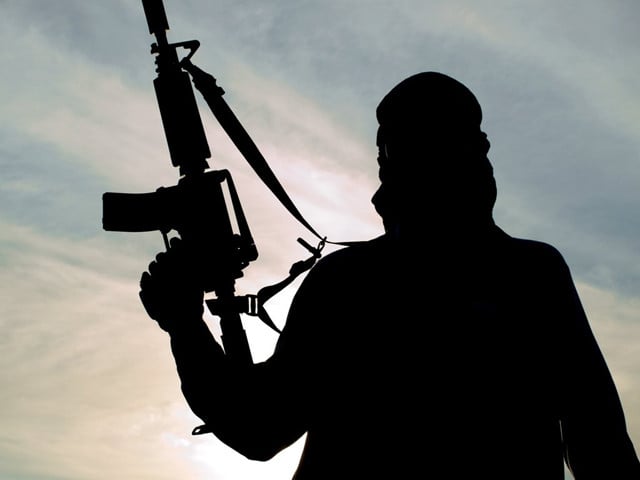Taliban govt’s inaction over terror activities against Pakistan unacceptable: PM Kakar
In a strong message to the government in Kabul, caretaker Prime Minister Anwar-ul-Haq Kakar has asked the Afghan Taliban to decide whether they themselves will take action against those terrorists who were using their soil to carry out attacks inside Pakistan or hand them over to Islamabad.
Terror activities in the country have soared by 79% during the first half of 2023, according to a statistical report released by the independent think tank Pakistan Institute for Conflict and Security Studies (PICSS). These figures represent a staggering increase in militant attacks compared to the corresponding period last year.
Pakistan blamed the incumbent government in Kabul for the recent spike in terrorism in the country and asked the Taliban regime multiple times to stop the cross-border attacks and use of Afghan soil against the neighbouring country.
During an exclusive interview on Geo News programme 'Jirga', the country’s chief executive said that the interim Taliban government’s inaction over terror activities against Pakistan is unacceptable.
PM Kakar said he is loyal to the homeland, adding that he does not need any certificate from anyone that he is a “Pashtun”.
To a question about the rising tensions between Islamabad and Kabul, he said: “My prime role is as a citizen of Pakistan and my loyalty is connected with the state.”
He also said, “All Afghans are equally important for Pakistan,” adding, “Pakistan and Afghanistan should think honestly about what they expect from each other.”
Stressing the need for action against the terrorists, the prime minister said that the Afghan government knew about the hideouts of the banned Tehreek-e-Taliban Pakistan (TTP) in the war-torn country.
He also clarified that talks could not be held at gunpoint.
‘Tough decisions inevitable for running state affairs’
Speaking about the government’s crackdown against illegal foreigners as the deadline was over on November 1, PM Kakar said tough decisions had to be taken to run the state affairs.
The government, he said, was not repatriating registered Afghan refugees and only undocumented Afghan citizens were being deported.
“We have adopted a better attitude towards the Afghan citizens,” the premier further said, asking illegal residents to return to their respective countries.
He went on to say that there is an appropriate time for holding dialogue and use of force.
'Victim card'
Reacting to recent allegations hurled at caretakers by two mainstream parties — Pakistan Tehreek-e-Insaf (PTI) and Pakistan Peoples Party (PPP) — the PM said that the “victim card” could be a “narrative” of any political party.
As the general elections are drawing nearer, the Imran Khan-led PTI and the Bilawal Bhutto-Zardari-led PPP have repeatedly been complaining that they were being denied a level-playing field in the run-up to polls and attempts are being made to pave the way for the Pakistan Muslim League-Nawaz’s (PML-N) return to power. They also accused the caretaker government of giving “preferential treatment” to the PML-N.
Bilawal had complained about his party never receiving a level-playing field. The party has been persistently voicing concerns regarding the absence of equal opportunities to prove itself ahead of the polls.
On the other hand, amid reports of minus Imran Khan elections, the PTI had also accused the interim government of denying them a level-playing field. The PTI chairman is behind bars in Adiala Jail and the party’s leadership claims that they are not allowed to run even electioneer.
In a bid to clear the air, the country’s caretaker chief executive said: “Holding the elections at the earliest is our utmost priority.” He said the interim government wanted people to elect their representatives by exercising their democratic rights in the upcoming elections — slated to be held on February 8 next year.
“We want to hand over the responsibilities to the [upcoming] elected government.”
Responding to a question about the allegations levelled against his government by the two mainstream parties, the premier asked: “What have we done that [a negative] impression is being given that we have a biased [attitude against] any political party?”, adding, “Did we imprison the former prime minister [Imran Khan]?”
He further clarified that the deposed prime minister — who was removed from office in April last year via a no-confidence motion — was apprehended before the caretaker setup.
The PTI chief was arrested from his Zaman Park residence in Lahore soon after being convicted in the Toshakhana case on August 5.
However, Kakar — a former senator and a leader of the Balochistan Awami Party (BAP) — took oath as the eighth caretaker prime minister of Pakistan on August 14.
The premier said that Khan was legally arrested and facing the charges in the court. “It would be impartiality if we would have acquitted him [Khan] of all the charges via a royal decree.”
The caretaker prime minister said that they could not do so legally.
“Think 10 times before hurling allegations,” he added.
“The PTI chairman is safe in jail,” he also said, adding that it is their legal responsibility to ensure the safety of the incarcerated former premier. “Nobody has personal enmity with the PTI chairman,” he said while rejecting the social reports claiming a threat to his life.
PM Kakar said all general elections were disputed except for the for the 1970 polls.
Responding to a question, the he also rejected the allegations that the caretaker government was seeking to “take personal revenge” from PTI chief Imran Khan.
Like other political parties, PTI leaders are engaged in electioneering in their respective areas in the run-up to the February 8 polls, he added.
Moreover, speaking about the Israeli relentless bombing of the besieged territory, the interim premier said: “Gaza has been made hell, especially for children”.
Source: GEO



























